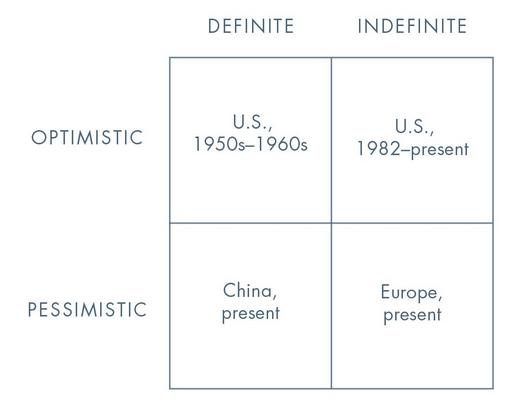Zero to One
This book, Zero to One: Notes on Startups, or How to Build the Future by Peter Thiel and Blake Masters, was a great read as I ramp up my own startup. Peter Thiel makes some interesting points on business, innovation, politics, and more.
He starts with this question:
"What important truth do very few people agree with you on?"
It is important to think about, as he later says, "good answers are as close as we can come to looking into the future."
On Capitalism and Monopolies:
"Actually, capitalism and competition are opposites. Capitalism is premised on the accumulation of capital, but under perfect competition all profits get competed away. The lesson for entrepreneurs is clear: if you want to create and capture lasting value, don't build an undifferentiated commodity business."
"Non-monopolists exaggerate their distinction by defining their market as the intersection of various smaller markets...Monopolists, by contrast, disguise their monopoly by framing their market as the union of several large markets."
"In business, money either an important thing or it is everything. Monopolists can afford to think about things other than making money; non-monopolists can't."
"All happy companies are different: each one earns a monopoly by solving a unique problem. All failed companies are the same: they failed to escape competition."
Characteristics of a monopoly:
- Proprietary technology (Google's algorithm)
- Network effects (Facebook social network)
- Economies of scale (Business gets stronger as it grows)
- Branding
Building a monopoly:
- Start small and monopolize - start with a very small market
- Scaling up - gradually expand into related and slightly broader markets
- Don't disrupt - this attracts attention
"Iteration without a bold plan won't take you from 0 to 1."
The need to be able to endure as a business:
"A great business is defined by its ability to generate cash flows in the future."
Technology vs globalization:
- He argues that technology is not a substitution for humans but a complement. "Technology is the one way for us to escape competition in a globalizing world."
- Globalization = substitution; Technology = complementarity
- People compete for both supply of labor and demand the same resources
- Computers are good at what humans are not - efficient data processing; humans are good at basic judgements and computers are not
- Vertical axis progress = technology (any new and better way of doing things)
- Horizontal axis progress = globalization (copying things that work)
Starting a business
The seven questions every business must answer:
- The Engineering Question
- Can you create breakthrough technology instead of incremental improvements?
- The Timing Question
- Is now the right time to start your particular business?
- The Monopoly Question
- Are you starting with a big share of a small market?
- The People Question
- Do you have the right team?
- The distribution Question
- Do you have a way to not just create but deliver your product?
- The Durability Question
- Will your market position be defensible 10 and 20 years into the future?
- The Secret Question
- Have you identified a unique opportunity that others don't see?
"The best projects are likely to be overlooked...the best problems to work on are often the ones nobody else even tries to solve.
Startup Principles that matter:
- It is better to risk boldness than triviality
- A bad plan is better than no plan
- Competitive markets destroy profits
- Sales matter just as much as product
Remember the Power Law in business - Most important things are singular:
- "One market will probably be better than all others"
- "One distribution strategy usually dominates all others"
- "...some moments matter far more than others"
Anticipate sources of misalignment in any company:
- Ownership: who legally owns a company's equity?
- Possession: who actually runs the company on a day-to-day basis?
- Control: who formally governs the company's affairs?
Definite vs Indefinite thoughts:
There are several 2x2 charts comparing definite and indefinite perspectives with others such as optimism and pessimism. It is interesting how he is able to categorize everything from philosophy to politics on this chart. (Read more here and here).
 {.size-medium .aligncenter width="530" height="406"}
{.size-medium .aligncenter width="530" height="406"}
"In philosophy, politics, and business, too, arguing over process has become a way to endlessly defer making concrete plans for a better future."